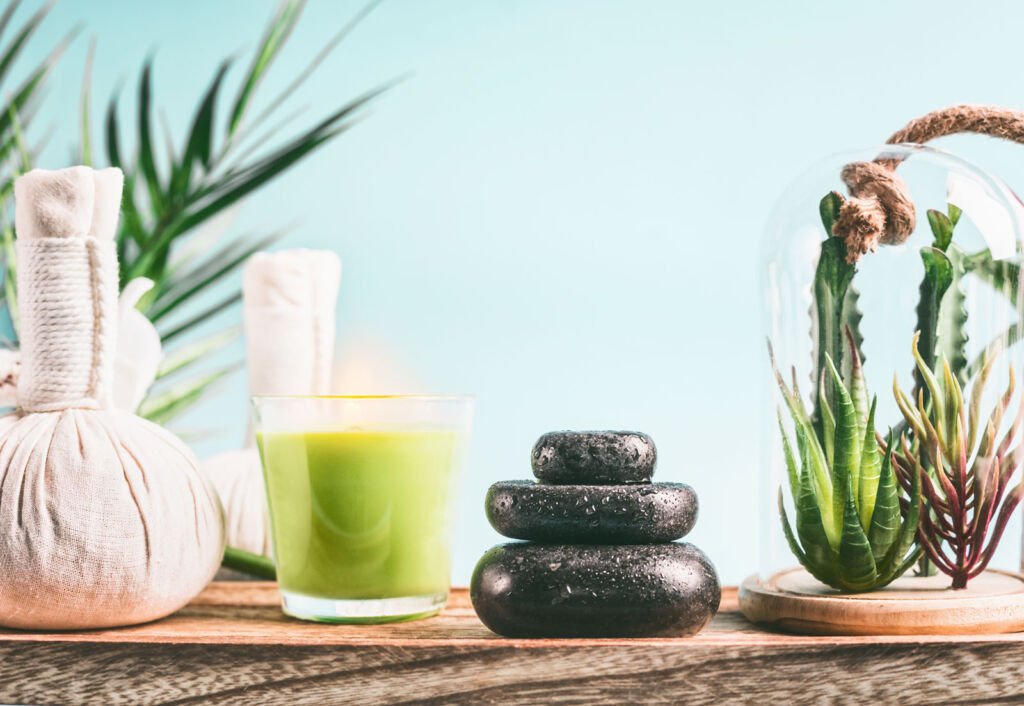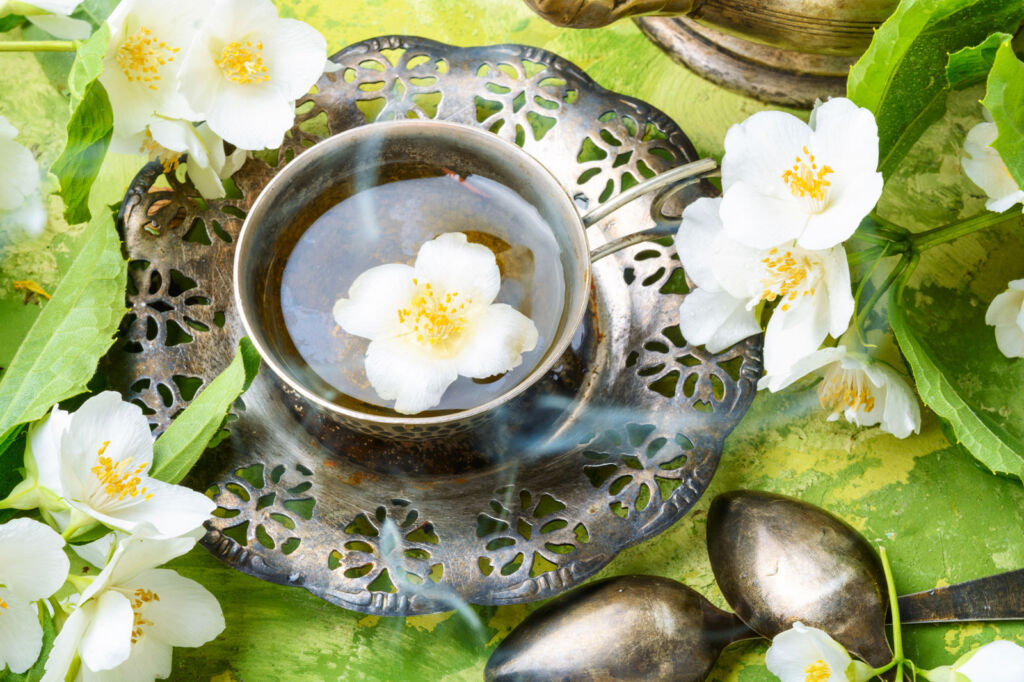
Make no bones about it; the world is a stress-filled place. However, there’s a lot you can do yourself to help reduce stress, such as breathing exercises, taking your mind off things with a stroll in the countryside or a vigorous workout. But, what if there was a way that involves zero effort? Step forward, stress-relieving houseplants!
The weather has been a little unpredictable this year. Although we’ve experienced the very same thing countless times over past decades, weathercasters will no doubt find something to say along the lines of, “Between 4:00 am, and 5:00 am on the 4th of August, an area two miles to the west of Repton in England recorded the third coldest summer night temperature in the past forty years, you’re all doomed!” Although we’re being light-hearted; it is this type of thing, coupled with the constant sensationalist media headlines, which only helps to increase stress levels!
Turning to nature
Nature is and has been, for a long time, probably the best way to lower stress levels. Ordinarily, we’d be championing heading out into the countryside, watching the wildlife and getting those legs moving to make you feel great. However, this isn’t always possible as the British weather is known worldwide as having a mind of its own! Even though the weather might cause us to stay indoors, there are ways you can still rid yourself of stress in the home.

One way, which was news to many of us in the office, is by having the right houseplants around you. Certain houseplants have been proven to help your immune system, boost productivity and have a positive influence on your mental health. Research has shown that bringing plants into your home environment can actually help reduce stress and improve blood pressure and heart rate.
But which plants are the best at relieving symptoms of stress and anxiety? We’ve asked a team of specialists from Delamere Health in the North West to share their top 10 list of plants with extra benefits.
1. Peace Lily
NASA found a Peace Lily to be one of the most effective plants at filtering harmful toxins and pollutants from the air. One of the main benefits it provides to human health is by combating toxic household chemicals, including benzene, xylene and carbon monoxide.
In addition to being aesthetically pleasing in your living space, the Peace Lily also helps eliminate the mould spores in the air. Therefore, it will help to reduce symptoms associated with mould exposure, including eye irritation, coughing, sneezing, throat irritation and skin irritation.

2. Aloe Vera
Aloe Vera is known for its anti-inflammatory elements, used for healing wounds and skin ailments, such as sunburn, acne and eczema. But the plant’s air purifying and low maintenance properties make it the ideal home addition.
Research into the behaviour of nurses found that exposure to pollution raises the risk of anxiety symptoms, including fearfulness, desire for avoidance and tendency to worry. The Aloe Vera plant also removes harmful chemicals from the air that can impact our respiratory system and trigger feelings of stress and unease.
3. Snake Plant
Snake Plants bring a beautiful touch of green to your home and can help improve indoor air by absorbing airborne toxic pollutants, such as formaldehyde and toluene, that impact your sleep, mood and energy levels.
With its preference for dry soil, the Snake Plant would be the perfect indoor decor option for any novice gardeners who want a plant that looks nice in their home and has a positive influence on their mental health at the same time.
4. Lavender
The calming scent of lavender makes it a perfect aromatherapy accompaniment. The fragrance from the plant is believed to promote a sense of calmness and tranquillity, with properties helping to reduce stress, anxiety and possibly even mild pain.
In fact, research into the behaviour of dental patients revealed that the lavender scent significantly reduces the anxiety levels of participants with phobias. The aroma of the plant created a natural sense of calm for patients waiting for treatment.
5. Rosemary
You might think of rosemary as an outdoor herb that exists purely to add flavour to your food. But when you keep rosemary indoors, it can help lower the stress hormone cortisol levels in your blood. Research confirms that the aroma of rosemary can improve cognitive function, which may help reduce anxiety symptoms.

6. Jasmine
Jasmine has been found to improve brain activity, induce sleep and help alleviate mental illness symptoms. Studies have concluded that the plant’s scent has therapeutic benefits that can be used as a medicinal alternative for depression, stress, anxiety and insomnia.
The scent from the Jasmine plant directly impacts the brain’s central nervous system chemical known as GABA, which calms the nerves, reduces anxiety and mild depression, and improves the quality of sleep in individuals.
7. English Ivy
English Ivy is known for being easy to care for but is also a powerhouse for removing harmful toxins from the air in your home. This plant is particularly beneficial for anyone with green thumbs looking to calm their allergies, particularly those suffering from asthma.
English Ivy’s air purifying properties can lower airborne mould inside the home and remove formaldehyde from the air, which helps to promote a good night’s sleep. Research by the American College of Allergy, Asthma & Immunology revealed that the plant removes 94% of airborne faeces and 78% of airborne mould in just 12 hours.
8. Chrysanthemum
Chrysanthemum does more than just brighten your space. The plant’s properties can have a positive influence on your mood and mental wellbeing.
Like other flowers, the Chrysanthemum improves air quality, reducing ammonia, toluene, and formaldehyde. Research has shown that surrounding individuals with the flower can improve short term memory and overall mood.

Why are houseplants good for our mental health?
We asked the specialists from Delamere Health to share why houseplants and gardening can reduce anxiety, depression, stress and insomnia.
“Scientifically, evidence suggests working with nature reduces cortisol levels, a chemical our bodies produce in response to stress. While being outdoors is beneficial for stress, your indoor green oasis also provides relief from stressors caused by day-to-day life.”
“Designing a garden, planting seeds and watching plants grow can give people a sense of purpose. For example, you can choose how you want to arrange your flower display, or which vegetables to plant or how big they will grow.
Gardening is also a great way to teach children about responsibility. Families can learn together to take care of their seeds for them to grow. Children can develop a sense of mindfulness, learning how respect for your environment and plants is important.”
“Gardening helps individuals develop a ‘growth mindset’, which is the simple belief that our basic abilities can be developed and improved through dedication and hard work. Having a growth mindset can be beneficial to our lives, as you begin to enjoy challenges, despite anxiety and nervousness. This is typical because we value growth and learning.”
Read more health and wellness guides and features here.
![]()




You must be logged in to post a comment.